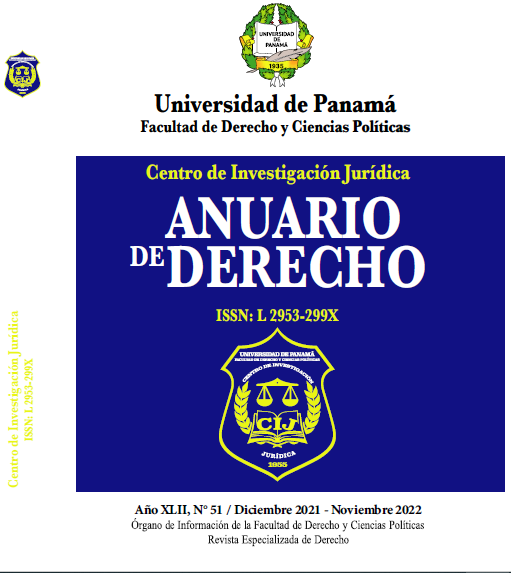

Copyright (c) 2023 Anuario de Derecho

Este trabalho está licenciado sob uma licença Creative Commons Attribution-NonCommercial-ShareAlike 4.0 International License.
La investigación ordenada, por el Ministerio Publico ante un hecho delictivo, es el inicio de un proceso penal llevado a los tribunales por las autoridades competentes, sin embargo es la investigación el inicio de todo un proceso judicial que requiere del estricto cumplimiento, no solo de las normas establecidas en el Código Penal y el Código Procesal Penal, sino también de los preceptos constitucionales y las convenciones Internacionales que reconocen los legítimos derechos de las personas en el debido proceso. Es por ello que esta investigación pretende demostrar que el debido proceso, ante un hecho delictivo tipificado en el Código Penal, se inicia con la investigación judicial ordenada por el Ministerio Publico, está obligada a seguir el protocolo como lo establece la Ley, como garantía del debido proceso, en el desarrollo de la audiencia, sin menoscabo de los derechos que le asisten a las partes, en especial al presunto o los presuntos señalados e investigados y vinculados a los hechos que se investiga.
La investigación en el nuevo Sistema Penal Acusatorio, es la columna vertebral de todo proceso, son los hechos los que van a permitir al Juez de la causa establecer, de acuerdo a su experticia, el grado de responsabilidad que le asiste a los señalados por la investigación, sin embargo es de interés resaltar que la compilación de las pruebas que van a determinar cómo se desarrollaron los hechos, deben pasar por el tamiz del ojo clínico del administrador de justicia, escuchando y tomando solo lo relevante de los aportes que brinda el Fiscal de la causa, de los testigos y por último de la versión narrada por las partes según sus verdades. Los hechos fácticos saldrán a relucir a pesar del interés que tengan las partes en dicho juicio, la investigación preliminar permite al Juez determinar la veracidad de las pruebas presentada con el fin de evitar afectar derechos consagrados y así tomar una decisión lo más apegada posible a lo que realmente sucedió, por lo tanto la epistemología de los hechos y las pruebas recabadas serán el fundamento jurídico que determinaran al final del proceso, la resolución, argumentada, razonada y sustentada por el Juez de la causa.